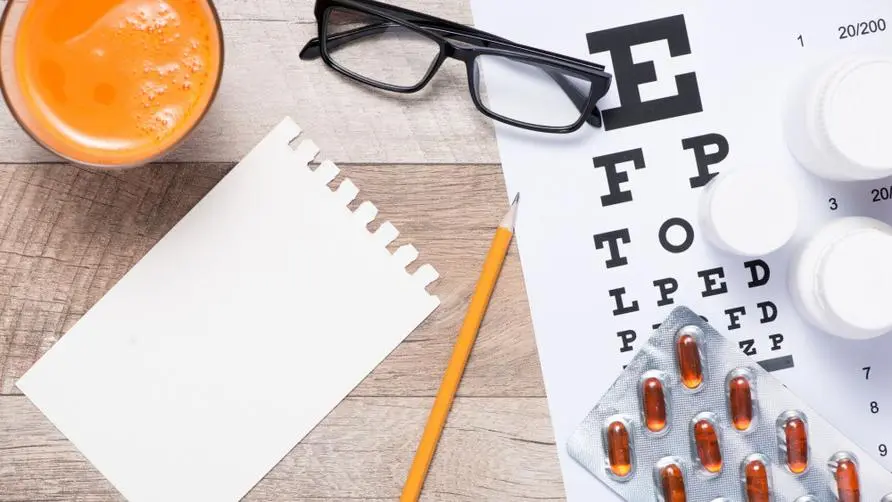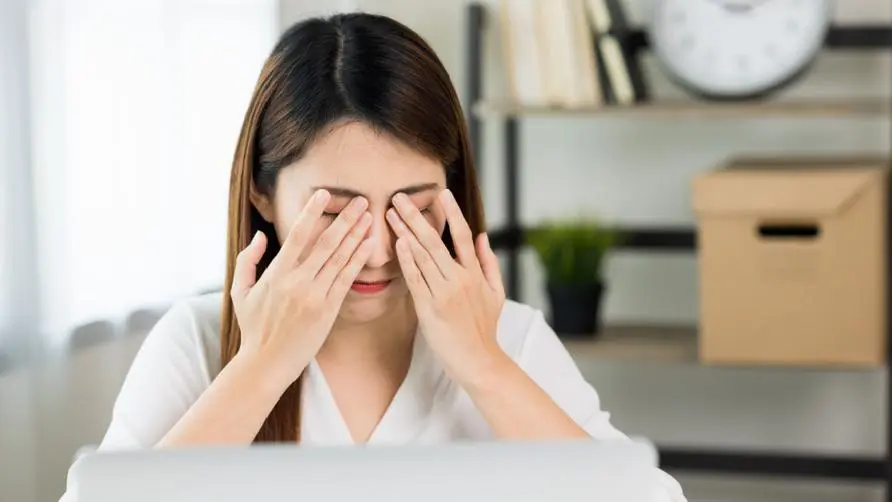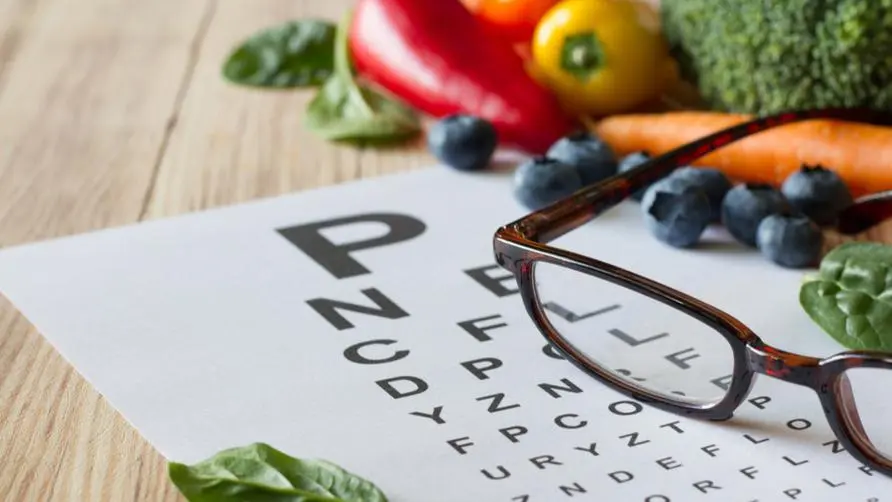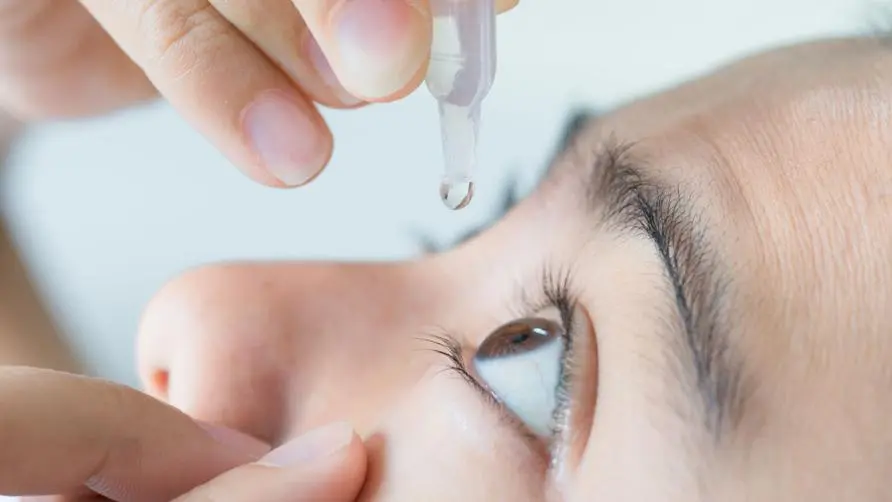Eat lutein to protect your eyes? Is eating for dry eye a waste of money? Pharmacist reveals the efficacy, function and correct way of eating lutein

What is lutein? What are the functions? Why is it important to the body?
Lutein is found in broccoli, spinach, corn, egg yolk, and pumpkin. It is one of more than 600 natural “carotenoids” discovered so far. It is a photosynthetic pigment and must be taken in from the daily diet. Because lutein is lipophilic and generally insoluble in water, it is classified as a fat-soluble vitamin.
Lutein is also a strong antioxidant. It coexists with zeaxanthin in the macula, the central light-sensitive area of the human retina. Its main functions include: filtering blue light to reduce damage to eye photoreceptor cells, inhibiting free radicals, etc. , like natural sunglasses, help your eyes block the harm of sunlight.
In current research, lutein is mainly used to improve age-related macular degeneration. Age-related macular degeneration is a disease that causes lesions in the center of the retina. The visual images seen by patients may be blurred and deformed, which may eventually lead to blindness. Age, genetic inheritance, and dietary intake are all related to macular degeneration. People who regularly consume vegetables, fish, and fruits are less likely to develop macular degeneration. Lutein has no obvious effect on other eye diseases such as myopia, hyperopia, presbyopia, and dry eye.
Who needs lutein supplements? Are there any side effects from eating too much?
The human body cannot synthesize carotenoids on its own and must obtain them from the diet. It is conceivable that office workers or students who have an unbalanced daily diet, those who frequently use mobile phones, tablets, and computers, and those who are exposed to the sun for a long time, such as farmers and drivers, all need to consume sufficient lutein.
In addition, pregnant mothers especially need to supplement lutein, because lutein will be transported to the placenta through the blood, enter the brain and liver through the umbilical cord at six months, and enter the eyes at nine months. Therefore, if lutein is taken throughout pregnancy, Without adequate intake of lutein, pregnant mothers are likely to suffer from eye discomfort, so pregnant mothers should include lutein supplements in their supplements.
Lutein is very safe. There is currently no research showing that long-term use of lutein will cause toxicity. However, long-term and high-dose supplementation may indeed cause skin to turn yellow. Therefore, the U.S. Food and Drug Administration (FDA) recommends The daily intake is 6 to 10 mg. The Food and Drug Administration of Taiwan’s Ministry of Health and Welfare recommends that the daily supplemental dose should not exceed 30 mg.
Lutein and natural foods may cause the skin to turn yellow; however, “jaundice” is also one of the causes of yellowing of the skin. How to tell whether the yellowing of the skin is related to diet or disease? You can pay attention to the “whites of the eyes”. Yellow pigmentation usually does not settle in the whites of the eyes. If the whites of the eyes are very clean, it is more likely to be caused by simply ingesting too much natural pigments. Usually, reducing the dosage or temporarily stopping use can improve it. Of course, if you have any concerns about symptoms, you should first go to the outpatient clinic to consult a specialist.
However, excessive intake of fat-soluble vitamins may also affect liver function, so supplementation with lutein should be done with caution, especially for the elderly and children, who should pay attention to dose control.
Is it good to take lutein from food or health supplements? What are the precautions for supplementing lutein?
To supplement lutein from food, you can consume more kale, agarwood, chrysanthemum, spinach, leek, cabbage, etc. You can get about 3.9-5.25 mg of lutein in 100 grams. However, if you have poor chewing ability, , people with poor gastrointestinal absorption capacity may be advised to consider supplementing through health food, as the intake efficiency is relatively ideal.
The best time to supplement lutein is to take it after meals. Usually, one tablet a day can achieve the recommended intake. However, it should be noted that long-term supplementation of lutein is recommended. Although the blood concentration will increase after intestinal absorption, it takes about 2-4 months to reach the macula of the eyes and be effective. Therefore, consistent and appropriate supplementation is meaningful.
Many people will go to pharmacies to ask why they don’t feel anything after taking lutein? In fact, lutein is an antioxidant substance that filters blue light and prevents macular degeneration. Some people who overuse their eyes are caused by abnormal regulation of the ciliary muscle. The ciliary muscle is a circular smooth muscle in the eye that is used to change the shape of the lens. When overuse of the ciliary muscles causes eye fatigue, taking lutein is not very helpful, and naturally there will be no obvious feeling. This is also why astaxanthin is added to current health products, which is more effective in improving other overuse of the eyes.
In addition, some people want to supplement lutein because of “dry eye syndrome”, which is also a very wrong concept. Generally, there are many causes of dry eye syndrome. The main reason is that the tear glands of the eyes cannot secrete enough tears. Or it could be an inflammation caused by tears evaporating too quickly and failing to keep the surface of the eye moist. The proportion of dry eyes in modern people is not low, including aging, comorbidities of allergies and rheumatoid arthritis, as well as antihistamines and antidepressants, which may increase the problem of dry eyes.
Improper eye use is also a common problem among modern people. Recently, Korean and Japanese dramas have become popular all over Taiwan. Many people stay up late to watch the drama and forget to blink. Normal eyes need to blink 10-15 times a minute to allow the intraocular fluid to spread evenly on the eyeball. However, People who often watch dramas do not blink for a long time, which leads to evaporation of water, which can easily lead to dry eye syndrome. If this group of people needs health food, it is recommended to consume high-concentration fish oil, which is more effective than lutein.
In addition, lutein intake is not very helpful for these eye problems such as cataracts, lens opacity, color blindness, astigmatism, floaters, pinpricks, nearsightedness and farsightedness, and glaucoma. Lutein mainly plays a clinical role in age-related macular degeneration and can help slow down the rate of deterioration. Judging from the current large-scale research, the main benefit of lutein is the improvement of the macula. Before supplementing with health food, you should understand your own eye problems and ask a professional pharmacist.
How to choose lutein? Are there different ingredients suitable for different age groups?
There are hundreds of types of lutein on the market, including lutein plus anthocyanin, lutein plus astaxanthin, lutein plus black currant, wolfberry, and bilberry. The most powerful ingredient is leaf Flavin plus astaxanthin. When choosing lutein, you can choose free lutein, the American FloraGLO patent authorized by an authoritative manufacturer, ZeaONE zeaxanthin patent, and astaxanthin AstaReal.
Astaxanthin is also a type of carotenoid. It cannot be synthesized by the body and needs to be ingested from food. Scientific research has found that astaxanthin has super antioxidant power and can allow algae to survive in extremely hot and cold conditions without food and water. It has survived for 40 years and has the ability to scavenge free radicals and inhibit the production of inflammatory substances. It is the only antioxidant nutrient that can enter cells and pass through the blood-brain barrier. The antioxidant power is 6,000 times that of vitamin C, 800 times that of Q10, and 2.75 times that of lutein. Clinical studies on astaxanthin in Japan and Canada found that taking 6-12 mg per day can reduce the formation of melanin in the skin by 40%.
In a 2012 research report, astaxanthin can increase the choroidal blood flow velocity of the eyeball and slow down the progression of myopia and glaucoma patients. Astaxanthin is not too difficult to obtain whether it is a single prescription or a compound, so you should first go to an ophthalmologist. After a doctor’s evaluation, talk to a pharmacist to discuss whether you need to supplement with lutein or combined ingredients, or simply supplement with fish oil.
However, in general, the lipidated lutein must undergo digestive enzymes before it can be absorbed. The free lutein removes fatty acids through hydrolysis technology, and the absorption rate is much higher than that of the lipidated type. For children and the elderly, I would recommend supplementing free lutein
Can lutein be taken with other health foods?
Lutein is a fat-soluble nutrient and can be taken with other fat-soluble foods or health foods, such as Q10, fish oil, pumpkin seeds and other fat-soluble combinations. However, if the diet contains too much dietary fiber, it may affect the absorption of part of the lutein, resulting in a decrease in the concentration of carotenoids in the blood.
It is worth noting that taking certain types of weight loss drugs has been proven to reduce the absorption of lutein. In addition, the absorption pathway of lutein competes with the B-carotene component, which will also reduce the absorption of lutein. Before supplementing with health food, if you have any questions, it is recommended to go to the pharmacy to ask a professional pharmacist. If you have chronic disease problems, it is also recommended to consult a doctor before asking the pharmacist to choose the method that suits you.
Further reading:





